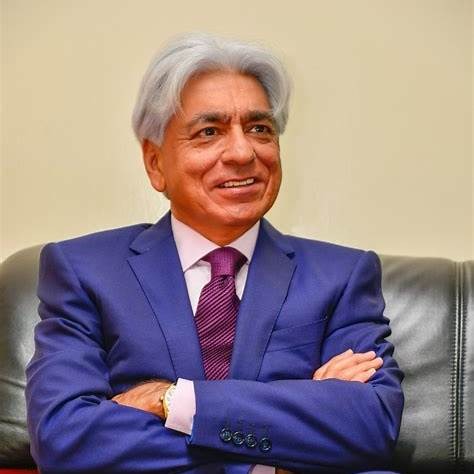
Bharat Thakrar, founding CEO of WPP-Scangroup, whose leadership helped shape East Africa’s marketing and communications landscape. His recent return signals a bold new chapter in the industry.
In the fiercely competitive world of advertising and communications, leadership is often tested not just in boardrooms but in the marketplace of loyalty, innovation, and strategic foresight. Few embody this better than Bharat Thakrar; the founding CEO of WPP-Scangroup and now a central figure in a bold and controversial client shift involving telecom giant Airtel.
Recent headlines reveal that Airtel Kenya, one of the region’s most valuable creative accounts, has moved from Scangroup’s stable to BBDO, a rival agency reportedly associated with Mr. Thakrar and former Scangroup executive Aly Khan Satchu. For some, this transition has sparked debate over ethics and insider influence. But for others, it marks the return of a tested leader reasserting his rightful place in Africa’s marketing landscape.
The Man behind the Brand
Bharat Thakrar is no stranger to industry transformation. As the pioneer behind Scangroup’s rise to dominance in East and Central Africa, he built an agency empire that not only led the creative economy but attracted global partnership with WPP, the world’s largest marketing services group. His vision placed Kenya on the global creative map, and his legacy continues to shape the sector.
Now, as he re-emerges on the competitive scene, Thakrar is not merely reclaiming accounts, he is redefining what it means to lead with both history and foresight. His continued influence underscores a truth often overlooked: relationships in advertising are built on trust, performance, and vision not just contracts.
Airtel’s Move: Business, Not Betrayal
It is easy to sensationalize the narrative as a client “poached” or a conflict of interest. But what if it’s simply a case of a client following leadership it trusts? Airtel Kenya’s decision may very well reflect confidence in a team that has consistently delivered, a team it already knows, led by executives who once drove the brand’s success while at Scanad.
In industries where people drive business, it is common for clients to move with the individuals they trust most. Rather than decrying this as betrayal, it may be worth recognizing it as a validation of enduring credibility and relationship capital, something few can replicate.
A Personal Perspective
Joseph Kanyamunyu, Managing Director of Publics Africa Communications and Founder of Publicist East Africa, shared his perspective:
“I had the privilege of working under Bharat Thakrar when I served as Managing Director for Hill+Knowlton Uganda and Rwanda, plus overseeing client work across Tanzania and Burundi. Bharat was more than a CEO, he was a visionary who demanded excellence and inspired it in return. His leadership shaped much of how I approach strategy and integrity in communications. To see him bounce back with such clarity and influence is not surprising, it’s who he is.”
The Larger Lesson: Reinvention is a Leadership Trait
Thakrar’s quiet but calculated return to the scene sends a powerful message to the next generation of African business leaders: reinvention is not retreat. Legacy is not entitlement. And in the face of adversity, the best leaders evolve.
His move also highlights a deeper challenge within the sector, the need for agencies to future-proof client relationships, talent retention, and institutional trust. Blame cannot be the default response when leadership shifts; reflection must also follow.
Conclusion
In the end, the industry must ask: if Airtel trusted the former executives enough to move with them, shouldn’t that speak louder than speculation?
Bharat Thakrar’s comeback, far from being controversial, could very well be the beginning of a new chapter in African brand leadership, one that blends legacy with agility and loyalty with results.
